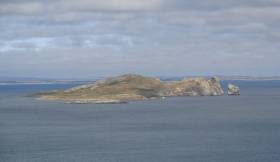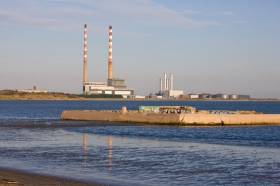Displaying items by tag: sewage
The Rivers Trust supports the findings of new report that rings alarm bells about the critical state of water quality management in Northern Ireland and Great Britain.
The Surfers Against Sewage Water Quality Report for 2023 says that in Northern Ireland, there is a lack of the discharge of raw sewage into waters at popular beaches and inland waterways bathing sites — and both anecdotal reports and water quality data suggest the problem is significant.
Mark Horton, all-Ireland director of The Rivers Trust said the report “underscores longstanding environmental concerns we continually raise. The evidence of the effects of sewage and pollution is there and clear.
“The severe algal bloom in Lough Neagh is a stark illustration of the consequences of poor environmental stewardship in Northern Ireland.”
NI’s 2,398 operational sewage overflows — and the sparse data on their performance — emphasise an urgent need for investment in increased monitoring and more transparency so the public can make informed decisions and remedial actions can be taken, The Rivers Trust says.
Horton added: “The management of sewage in Northern Ireland shows a critical need for investment and modernisation. With the absence of a functioning Stormont Executive and no independent environment agency, decisive actions to protect and restore water quality are practically impossible.
“This inaction is unacceptable. Water users in Northern Ireland deserve the same level of safety and information as those elsewhere. Ultimately, we need proper resourcing of Northern Ireland Water to enable it to put in place real-time sewage alerts, so swimmers, surfers and anglers can protect themselves from direct discharges of untreated sewage.”
Horton acknowledged NI water’s plans to deploy monitoring systems by 2024 as “a positive step”, but cautioned that “the lack of clarity on how data will be dissemination and public accessibility to the data remains a concern”.
“Real-time, accessible water quality information isn’t just a nice-to-have; it’s a necessity for the health and safety of our communities and ecosystems,” he said.
Sea Angling Business Complains of ‘Disgusting’ Discharge From Faulty Storm Water Pipe in Wicklow Harbour
The operator of a sea angling business in Wicklow Harbour has spoken out over a faulty storm drain pipe that has been pumping raw sewage into the water next to his berth.
Kit Dunne of Wicklow Boat Charters told the Wicklow People that he has brought the problem with the South Quay outflow pipe to harbour officials and local councillors “time and again” over a number of years.
“I’m investing in a new vessel at a cost of €300,000 and I don’t see how I can develop my business if my new boat is right beside a stinking sewer,” he said.
The harbour, which is also used regularly by Wicklow Swimming Club, was recently subject to a no-swim notice due to pollution from the storm water overflow.
Meanwhile, Cllr Mary Kavanagh recently engaged with Dunne on the matter and said she is following up with the relevant officials.
“Sewage shouldn’t be mixing with surface water and coming out of a overflow storm drain,” she said. “I don’t know yet what is causing it but it is totally unsatisfactory to have sewage going into the harbour. The smells are appalling and you can only imagine the damage that is being caused to marine and sea life.”
The Wicklow People has more on the story HERE.
The Environmental Protection Agency (EPA) says as much as 500 million litres of potentially untreated wastewater is being released into Ireland’s rivers and coastal waters every day.
As the Irish Independent reports, the agency warns that it will take decades, and billions of euro, to correct the problem — but as yet Irish Water has “no clear action plan or time frame” for remedial works at many of what the EPA identifies as priority areas.
As of the middle of 2022, as many as 32 small towns and villages were discharging raw sewage as they have no wastewater treatment infrastructure.
Overall, the EPA claims that 49% of Ireland’s sewage — far above the EU average of 10% — is “still not treated to the standards set to protect the environment”, according to the agency’s programme manager Noel Byrne.
The Irish Independent has more on the story HERE.
The Irish National Sailing & Powerboat School (INSS) has expressed its frustration over the second discharge this month of wastewater into Dublin Bay, which has seen new bathing bans issued at several popular swimming spots in the capital.
While the latest notice does not apply to the waters inside Dun Laoghaire Harbour, the INSS says it has still had to activate its ‘unclean water procedure’ as Salthill beach, from where it usually operates, and other locations woke up to an ‘orange slick’ on the shoreline this morning (Tuesday 25 June). This slick has since been confirmed by the local authority as an algal bloom "not directly associated" with the wastewater overflow.
The procedure involves alterations to activities, use of small keelboats instead of dinghies if appropriate, and stringent instructor supervision to ensure people are on rather than in the water.
While afloat, all safety boats must carry hand-sanitising wipes, and children must regularly wash their hands. Shore side, extensive hand-washing, sanitising gels and a focus on good hygiene practises minimises the risk as much as possible.
“On this occasion, we have been relatively lucky to still be able to operate within the harbour,” said Glyn Williams, the school’s communications and marketing manager.
“However, it’s not good enough that we find out about this later in the day,” he added, referring to the initial reports of the latest bathing ban last night. “The treatment plant operator knew they were discharging. Why not tell everyone straight away?”
Chief instructor Kenneth Rumball also noted that the summer sailing season for children is only 12 weeks long, and with the current water notices lasting until at least this Thursday “we now have six days of a short summer lost to this”.
Responding to Irish Water’s claim that the latest overflow ‘happened as it should have happened’, the school said this cuts little ice with the parents of children attending the its courses.
“Parents are equally as exasperated as we are. While all those we spoke with earlier this morning are understanding, they equally feel that Irish Water/the treatment plant operator should get this solved more quickly than they are currently doing.”
Following similar calls by the likes of Green Party Councillor Ossian Smyth, the INSS is urging those with responsibility to immediately progress upgrades for the sewage system at Ringsend Treatment Plant to cope with heavy rainfall — something Irish Water says would require a “huge amount” of investment.
The school also calls for more transparent communication, in real time, if and when discharges are occurring, coupled with pre-emptive warnings and same-day water sampling results.
Commenting on how these water quality issues affect the development of Dun Laoghaire Harbour as a marine leisure destination, Glyn Williams said: “We have to make sure that we get the basics in place before we undertake large scale plans.
“There’s no point in expending time and money when the most basic requirement for water sports is not in place: safe water to operate in.”
Updated: New Bathing Ban For Dublin Beaches After Heavy Rains Lead To Wastewater Overflow
Heavy rains in recent days have led to another wastewater overflow at the Ringsend treatment plant, as well as other pumping stations, that has prompted a new swimming ban at several Dublin Bay beaches.
It marks the second time this month that bathing has been prohibited at Dollymount Strand, Seapoint, Sandycove and the Forty Foot at Sandycove.
Both Dublin City and Dun Laoghaire-Rathdown councils say their bans will remain in place pending test for water quality, the first results of which are due on Thursday — in a week where Met Éireann forecasts higher temperatures.
While the bans do not affect Dun Laoghaire Harbour or other beaches in either council area, organisers of water-based sporting events have been advised to take note, as The Irish Times reports.
Notices will be put up on beaches today, Tuesday 25 June, according to RTÉ News.
Update 4.30pm: Dun Laoghaire-Rathdown County Council says tests on an ‘orange slick’ at Sandycove Beach confirm the presence of Noctiluca scintillans, a form of algae, and not raw sewage.
In a statement, the council said the non-toxic species is “a natural summer phenomenon in response to long day length, high nutrients and warm water” and is “not directly associated with the waste water overflows associated with the temporary bathing prohibition”.
Dublin local authorities have issued bathing ban notices for a number of popular swimming spots after a sewage leak at the Ringsend wastewater treatment plant, as RTÉ News reports.
Swimming is currently prohibited along the coast between Dollymount in North Dublin and White Rock Beach in Killiney on the Southside, just beyond Dublin Bay.
The string of bathing spots includes the enduringly popular Forty Foot in Sandycove.
Moreover, Sandymount and Merrion just south of Ringsend — where the wastewater plant was in the news earlier this year over a discharge in the Liffey — have been landed with a swimming ban for the entire 2019 bathing season due to their overall poor water quality.
RTÉ News has more on the story HERE.
Irish Wastewater Schemes Fall Foul Of European Court of Justice
Almost 30 sewage schemes across Ireland fall short of EU directives on wastewater treatment, as The Green News reports.
The European Court of Justice ruling from this past Thursday 28 March now means Ireland could be liable to significant fines if the problem schemes are not addressed.
Among the court’s findings were that Cork city’s strained wastewater treatment scheme was subject to more than 800 spillages of untreated sewage in 2015 alone.
Sensitive areas in Killarney, Longford, Dundalk and Tralee, among others, were also affected by untreated wastewater discharges for which the State has been reprimanded by European judges.
In addition, the State as found guilty of failing to provide for secondary treatment at a number of problem sites including Cobh in Cork Harbour, the fishing harbours of Arklow and Killybegs, and Ringsend in Dublin — the latter of which was the scene of a discharge of ‘activated sludge’ only a month ago.
The Department of Housing and Local Government says it has provided Irish Water “with the necessary resources to both tackle the deficiencies identified by the [ECJ] as well as providing the infrastructure which will underpin the future sustainable development of our country.”
Part of the State’s defence in this case were occasions of ‘unusually heavy rainfall’ that overwhelmed the country’s wastewater management systems.
Such conditions are also linked to the leeching of nitrates and phosphates from agricultural sites causing seaweed blooms in coastal areas, as highlighted by a recent academic report.
The news also comes after oral hearings began into a long-planned €500 million wastewater treatment scheme for North Dublin that faces strong local oppositions.
The Green News has more on the story HERE.
Planning Hearing On Clonshaugh Wastewater Plant Gets Under Way
Planners are from today set to review proposals for a controversial €500 million wastewater treatment scheme in North Dublin, as The Irish Times reports.
Clonshaugh near Dublin Airport was chosen in June 2013 as the site for the sewage ‘super plant’ before Irish Water took over the Greater Dublin Drainage project from Fingal County Council last year.
The new plant — second only to the Ringsend wastewater facility in scope — would be connected to a new orbital sewer to Blanchardstown, and an outfall pipe to eject treated wastewater in the sea north of Ireland’s Eye.
Plans for the new sewage processing plant have faced strong local opposition, both from residents adjacent to the Clonshaugh site and connected works and marine professionals concerned about potential environmental risks.
Last October, Howth-based ferryman Ken Doyle expressed his fears of the knock-on effect on fish stocks from any accidental contamination of the local waters from the outfall pipe.
The planning hearing began at The Gresham hotel in Dublin this morning, and The Irish Times has more on the story HERE.
#MarineWildlife - A Howth-based ferryman fears for marine wildlife on and around Ireland’s Eye when a planned sewage outfall pipe begins discharging wastewater in the area.
Ken Doyle of Ireland’s Eye Ferries tells Dublin Live that any accidental contamination of the waters from the pipeline, from Clonshaugh to a mile off the small island immediately north of Howth, could have a disastrous knock-on effect on fish stocks — an issue both for sea anglers and local bird and seal colonies.
Five years ago, Clonshaugh in North Co Dublin was chosen as the location for the capital’s wastewater treatment ‘super plant’.
The scheme will connect a 26km orbital sewer through counties Dublin, Kildare and Meath with an outfall pipeline ejecting waste off Ireland’s Eye.
Doyle noted that when the outflow of raw sewage at Howth Head was ended with the opening of the Ringsend treatment plant, improvements in water quality meant “the bird population increased hugely and it’s all positive but I wouldn’t like it to go back to like it was.”
He adds that he is not opposed to the wastewater scheme in principle — only that he and other local residents and businesses want assurances that the plant will not have any negative impact on the environment.
Raw Sewage Discharged In Over 40 Spots Nationwide Says EPA
#Pollution - Cork Harbour, Ringsend in Dublin and more than 40 other Irish riverside or coastal towns and cities in still fail to meet EU sewage standards, according to a damning new EPA report.
RTÉ News has details of the environmental agency’s 2015 Urban Waste Water Treatment Report, which identifies 43 urban areas — 29 of them classed as large towns or cities – that continue to release raw sewage into the sea and rivers across Ireland.
A number of these locations have seen their timetable for tackling such discharges slip by almost two years due to lack of sufficient capital investment, which the EPA decries as “unacceptable”.
In locations such as Youghal and Merrion Strand, the release of untreated waste has been linked to a significant lowering of bathing water quality.
The news is little different from almost three years ago, when the EPA identified the likes of Killybegs in Co Donegal and Cork Harbour as black spots for untreated wastewater.
More recently, Housing Minister Simon Coveney promised that the problem of discharges from a number of communities around Cork Harbour would be solved within the next 18 months, as previously reported on Afloat.ie.






























































